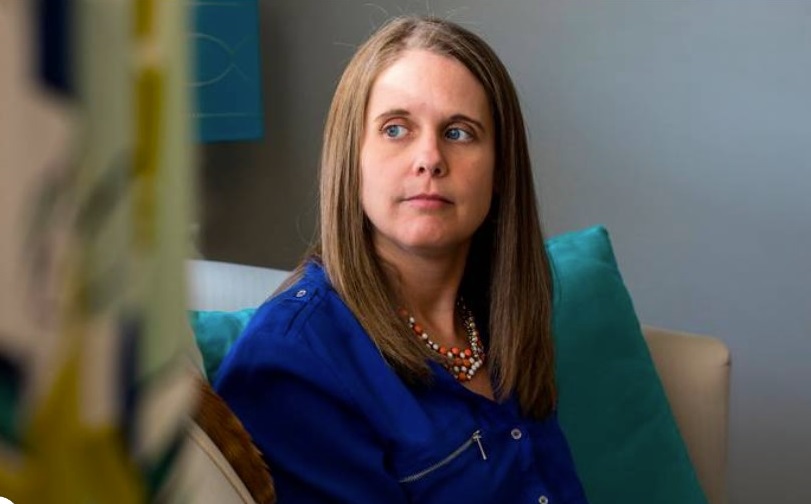RALEIGH (NC)
Charlotte Observer [Charlotte NC]
October 3, 2021
By Carli Brosseau and Sara Coello
[Includes video about survivor Katie Trout.]
In the late 1990s, Kevin Trapani helped found an insurance business with an unorthodox mission: prevent child sexual abuse.
Already in the insurance industry, he wanted to maximize the public benefit from the vast stores of claims-related data that insurance companies accumulate. And to a guy who practically grew up at his local YMCA, focusing on organizations that serve kids seemed like a perfect way to combine his passions.
“We figured that if we could develop close and trusting relationships with those customers, we would have the data about how kids were harmed,” Trapani said. Then, “we would share that information with our customers in such a way that they could change their programming and operations, so that the kids in their care would be more safe.”
Almost 25 years later, The Redwoods Group, based in Morrisville, is one of the country’s largest insurers of YMCAs, summer camps and other child-supervising organizations. And allegations of abuse against its customers are down more than 40% since the company’s 1997 founding, Trapani said.
Redwoods translated its findings about how things went wrong into model policies and practices that it shares with the groups it insures and with the public on its website.

What Prevents Abuse?
Child sexual abuse can include a wide range of behaviors. Touching isn’t always involved.
Abusive behavior can include an adult showing a child pornography, photographing a child in sexual poses or watching a child undress, according to Prevent Child Abuse North Carolina, a nonprofit that provides free training on recognizing and responding to abuse.
The “first and most important rule” for preventing child sexual abuse is to not allow an organization’s employees to be alone with children, Trapani said.
“What we found most often was that the number one thing that happened was that there was inadequate supervision, or that the adult was allowed to be alone with a child,” he said.
Redwoods also identified gift-giving as a potential signal of “grooming,” a set of practices a predators might employ to increase trust with children, paving the way for later abuse.
“That’s not to say that everybody that’s ever given a gift to a child is a predator,” Trapani said. “But what I would tell you is every predator is giving a gift to a child at some point.”
Redwoods advises child-serving organizations to have a code of conduct that calls out “non-negotiables,” barring behaviors often associated with grooming, and to regularly review the rules with staff.
A template code of conduct, borrowed from YMCA of the USA, includes directives that staff should supervise private activities in pairs, never be alone outside of work with children they meet through the organization’s programs and never drive children anywhere in their own vehicles.
What Should Parents Check?
Parents should be familiar with the employee code of conduct at any organization they entrust with their child’s care, Redwoods advises.
The insurance company tells its customers to discuss their child protection policies with parents and to go beyond that to educate parents about the signs of abuse.
Those indicators can be physical, such as unexplained bruising or bleeding; or behavioral, such as excessive talk or knowledge about sex. A child might also become more secretive or fearful.
A good institutional child protection plan, according to Redwoods, should cover employee hiring and training, as well as staff rules and expectations.
Before dropping a child off at summer camp or a scout meeting, parents should know:
- How does the organization screen employees?
- What training does the staff receive about preventing child sexual abuse?
- Are staff allowed to be alone with my child?
- Are staff allowed to see my child outside of official programming?
- Are staff allowed to correspond with my child electronically?
- What is supposed to happen if there is an allegation of sexual misconduct?
Beyond Redwoods’ guidance, other resources are available for parents who want to know how institutions can best prevent child sexual abuse. That includes this 2017 report by an Australian Royal Commission and a 2007 report by the U.S. Centers for Disease Control and Prevention.
The anti-abuse nonprofit Darkness to Light offers prevention training to various groups that work with children, as well.

